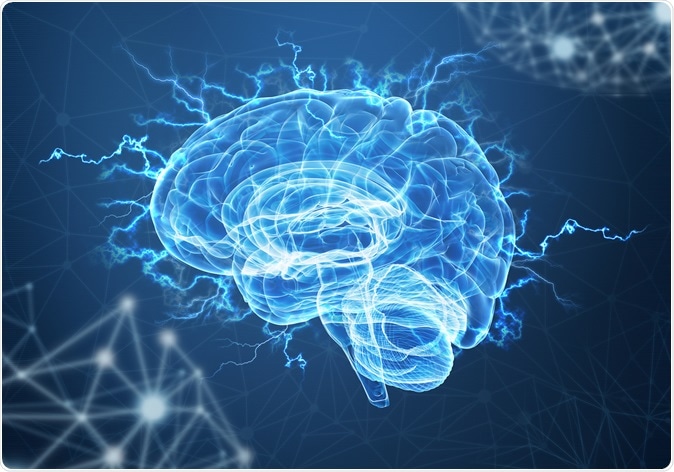An amazing new case study reports on an 11-year-old boy, code named UD (to protect his privacy), who underwent a procedure to remove a part of his brain that resulted in the rewiring of the rest of it over time.

Image Credit: Ravil Sayfullin
UD underwent a brain operation when he was 6 years 10 months old. The entire occipital lobe that houses the brain’s balance and vision centre along with a large part of the right temporal lobe of the brain that carries both visual and auditory signals had to be removed. After the removal the rest of the left brain compensated for the lost part and now as he is nearly 11, the boy retains his cognitive as well as visual functions.
Senior author of the study Marlene Behrmann, neuroscientist at Carnegie Mellon's Department of Psychology and Center for the Neural Basis of Cognition explained that this case showed that one hemisphere of the brain was enough to provide one with normal visual function. The study results were published this week in the latest issue of the journal Cell Reports.
Behrmann said that UD still has some visual impairment but from the level of the operation he should have no visual acuity. UD was suffering from severe epileptic seizures at the age of four which impaired his brain development and severely affected him. Over two years he was treated with multiple medications to control his seizures, but none could stop them from coming back. The seizures reduced in frequency but did not go away. Behrmann explained that as a last resort they decided to go for a lobectomy. In this surgery the focal point of epilepsy in the brain was to be removed without removing or impairing other parts of the brain.
Behrmann was not one of the surgeons who performed the operation but explained that lobectomy may be needed in 4 to 6 percent of epileptics in whom medications fail to work. She added that in 60 to 70 percent children with similar refractory epilepsy lobectomy seems to control the seizures. For UD, the team of doctors identified a tumor in the right hemisphere and removed it when he was 6 years old. Along with the tumor they removed large parts of the two of the four lobes of the right hemisphere of the brain.
Behrmann said that even after a year of the operation the child was stable and did not need epilepsy medications. Before the surgery UD had to be tested for his visual acuity because after the surgery a large part of the brain that deals with visual sensations would be absent. UD was followed up for three years thereafter and his brain was scanned at five different time points to measure brain activity.
This was when the team noted that UD’s brain began to rewire itself after the surgery. The left part of his brain began to take over for the missing right parts of the brain. All the while the left part of the brain continued to perform its own tasks such as recognition of words etc. The left part also began to recognize faces which is the job of the right brain. Behrmann said, “So as word recognition was emerging, we could see a kind of jostling for position between word recognition and face recognition in the same left hemisphere. They kind of like pushed each other around a little bit and then settled down.” At present UD has “entirely normal” face and word recognition skills she said and both functions are being performed by the left brain. Behrmann explained why face and word recognition are a big deal. She said that normally developing children may also take a long time to distinguish between similar looking words and similar looking faces. UD underwent all the tests that a boy of his age should be able to perform and found that he had no loss of function in this respect at all.
Around a year after surgery UD was tested for object recognition and recognition of scenes. These functions remained normal and as time passed they developed normally like any other boy his age and his brain continued to function normally.
The only loss that UD experienced after surgery was loss of visual acuity in the left eye that typically goes from the left eye to the right brain. Lack of the right brain means that the visual information from the left eye has no connection with the brain. He uses his right eye and moves his head to get a clearer picture explained Behrmann.
UD is attending school with other children and his test scores remain average to advanced showing that his brain is functioning normally.
Researchers and scientists worldwide find UD’s case interesting because of how part of his brain compensated for the whole. Behrmann and her colleagues are expanding their work to more number of children who are undergoing similar surgeries to see if their brains too recover from the lobectomies like UD.
Source: https://www.cell.com/cell-reports/fulltext/S2211-1247(18)31041-6